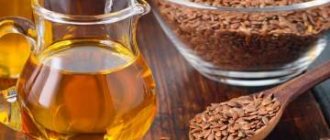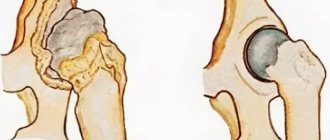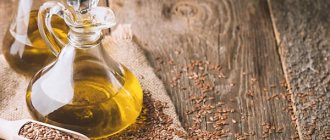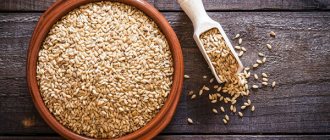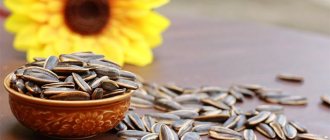How to drink flaxseed oil
Flaxseed oil is one of the most healing and healthy vegetable oils. But despite this, nothing was heard about him in Russia for a long time. During the Soviet Union, it was rare, and the production of this oil almost ceased: it was believed that the production of this oil was much more expensive than the production of sunflower oil, and at that time it was necessary to produce products en masse, since first of all they thought about fulfilling the state plan, and not about benefit.
Hippocrates also used flaxseed oil to relieve pain in patients, treat burns and wounds, and stomach diseases. In Russia, this oil was used as a cosmetic and medicinal product and eaten. Nowadays, you can easily verify the benefits of this oil, however, in order to get the maximum of such benefits, you need to know how to drink flaxseed oil.
One to two tablespoons of flax oil contains the daily requirement for unsaturated fatty acids. You can drink the oil immediately before eating, with a piece of bread, preferably rye bread. Flaxseed oil can be added to porridge, salads, etc. The duration of the course for medicinal purposes is at least two to three months. When taking flaxseed oil for one to two years, people recorded good results in terms of improving the health of the entire body and the duration of an active life.
People with arthritis or other joint diseases should drink flaxseed oil on an empty stomach, one tablespoon twice a day. If a patient has hypertension, then flaxseed oil is recommended to be included in the diet every day.
For diseases of the cardiovascular system, it is recommended to take one tablespoon of oil in the evening a couple of hours before dinner. Subsequently, the dose can be increased.
Atherosclerosis: the oil must be taken daily for a month or a month and a half. spoon 2 times a day, during meals. At the end of the course, take a break of three weeks, and then repeat the course again.
If you have multiple sclerosis, which is a fairly serious disease, you can also alleviate the condition by taking flaxseed oil. Take it on an empty stomach, two teaspoons daily: before breakfast and before bed.
If lipid metabolism is disturbed, then such oil must be present in the patient’s diet every day. For constipation, it is recommended to drink a tablespoon of oil before meals, once or twice a day.
People who eat vegetables should also consume this oil regularly. This is due to the fact that, as is known, they contain a large amount of nitrates, and flaxseed oil contains thioproline, a natural TCA antioxidant. Thioproline absorbs and removes carcinogenic substances nitrosamines, which are derivatives of nitrates, from the body.
You cannot cook with such oil, because when heated, all the beneficial properties are lost, and therefore, when consumed, only harm will result - the oil will oxidize and the body will receive free radicals rather than fatty acids.
Oil can be added to sauces, salads, appetizers, main courses, etc. It is better to buy oil in small bottles and always check the expiration date when purchasing: after opening, the oil will quickly deteriorate, even when stored in the refrigerator, and a small amount of oil is used up faster. The container with oil should be made of dark glass, with a well-closed stopper. If the oil thickens and becomes cloudy and becomes more bitter, it should be thrown away immediately. You shouldn’t even use it externally, because it won’t do any good.
The oil is also used for weight loss: it accelerates fat loss at night. Flax oil not only burns fat, but also can remove harmful toxins from the body. Thus, there is a gradual cleansing of blood vessels from cholesterol deposits.
Like any medicine, you need to use weight loss oil in the system:
- one teaspoon fifteen to twenty minutes before breakfast;
- one teaspoon a quarter of an hour after dinner.
Within a week, the dose should be increased to a tablespoon, and drink this way for two to three months.
Contraindications
Acute cholecystitis, inflammation of the cornea, severe diarrhea.
If there is a peptic ulcer of the stomach and duodenum, pancreatitis, ulcerative colitis or cholelithiasis, then the oil cannot be consumed, but it is not forbidden to use flaxseed jelly.
Beneficial properties of flaxseed oil and flax seeds
Flaxseeds are useful for treating many diseases
Flaxseed oil is made from flax seeds. It consists of 50-60% omega-3 fatty acids in the form of alpha-linolenic acid (ALA) and 20% omega-6 in the form of linoleic acid. Obtaining essential fatty acids from food is especially important because the body needs them to function properly and maintain health, but is unable to produce them on its own. In addition to polyunsaturated fatty acids (PUFAs), flaxseeds are a rich source of vitamins and fiber, and also contain a group of chemicals called lignans. Thanks to the presence of all these components, flaxseed oil has extensive beneficial properties and has a positive effect on many body systems, including cardiovascular, circulatory, immune, reproductive, nervous, as well as joints, skin, hair and vision.
Benefits of flaxseed and oil
Taking flaxseed oil helps reduce the level of “bad” cholesterol and triglycerides in the blood, thereby reducing its viscosity and preventing the formation of plaque on the walls of the arteries. This leads to improved blood circulation and a significant reduction in the risk of developing cardiovascular diseases, including atherosclerosis, heart attack, thrombosis, angina and stroke. In addition, flaxseed oil can normalize blood pressure in hypertension.
ALA in flaxseed oil, as well as lignans in flax seeds, increase the body's immunity and resist inflammatory reactions. The anti-inflammatory properties of flaxseed oil reduce pain and swelling in the joints in various arthritis, inflammation in gout, lupus, fibrocystic mastopathy, nephritis.
Flaxseed contains many antioxidants, essential for preventing and fighting cancer. Therefore, their consumption reduces the risk of developing various forms of cancer, including colon, breast and prostate glands. In addition, lignans can protect against various effects of aging.
The omega-3 PUFAs in flaxseed oil promote the transmission of nerve impulses, making it beneficial in protecting nerve cells from damage and in relieving tingling and numbness conditions. These properties of flaxseed oil are also useful in the treatment of degenerative diseases of the nervous system such as multiple sclerosis, Parkinson's and Alzheimer's diseases. Taking flaxseed oil helps restore cell membranes, which helps in the treatment of diabetes. In addition, flaxseed oil improves the condition of patients with schizophrenia and the mental abilities of older people.
Due to its high fiber content, flaxseed cleanses the intestines of accumulated waste and maintains its normal functioning. In addition, dietary fiber facilitates the passage of stool and thereby prevents constipation and helps in the treatment of hemorrhoids and diverticulitis. Also, the fiber from the seeds binds to cholesterol in the intestines and prevents its absorption. And taking flaxseed oil soothes inflammation of the gastrointestinal tract and restores it after various damages. In addition, flaxseed oil prevents the formation and promotes the dissolution of gallstones.
Flaxseed oil is effective in treating skin diseases such as acne, rosacea, eczema, psoriasis, and dandruff. Treatment with linseed oil helps speed up the healing of sunburn. In general, flaxseed oil has soothing properties for the skin, helps renew and slow down its aging.
Flaxseed oil promotes healthy hair and nails by nourishing and strengthening them inside and out. It helps get rid of brittle and dry hair and nails, preventing them from cracking and splitting. Also, eating flaxseed can eliminate dry eye syndrome. Additionally, omega-3 PUFAs may reduce the risk of macular degeneration, a leading cause of vision loss in older adults.
The lignans in flaxseeds have estrogenic properties, so they help normalize hormonal levels in women and relieve menopausal symptoms caused by estrogen deficiency, such as hot flashes, vaginal dryness and many others. At the same time, flaxseed improves the reproductive health of women, has a beneficial effect on the menstrual cycle and is useful for endometriosis. In addition, the essential fatty acids in flaxseed oil inhibit the production of prostaglandins, substances that cause menstrual pain. Also, phytoestrogens in flaxseed oil reduce the risk of developing osteoporosis.
Flaxseed oil prevents the inflammation and enlargement of the prostate gland that occurs as men age and alleviates associated urinary problems. In addition, flaxseed oil improves sperm health, which is very useful in the treatment of male infertility, and increases blood flow to the penis, which has a beneficial effect on erectile dysfunction.
Flaxseed products are an important part of many weight loss diets as they support normal blood sugar levels and reduce sugar cravings, and when combined with a healthy diet, promote weight loss. Flaxseed oil is a powerful antioxidant that can help boost your metabolism. And flaxseeds, due to their richness in fiber, fill the stomach faster with less food eaten, which helps to avoid excess calorie consumption.
Tips and warnings
The recommended daily intake for most people is 1 tablespoon of flaxseed oil per 45 kg of body weight, which equates to about 7 grams of ALA. It is also recommended to add flax seeds to your diet; using up to 30 grams of seeds per day is safe and does not cause side effects.
Flaxseed oil loses its beneficial properties when exposed to heat, light and oxygen, so when purchasing, you should give preference to the product in darkened bottles and store it in the refrigerator in a tightly closed container to extend its shelf life.
Other materials in this category
Flaxseed oil, first cold pressed capsule No. 60
Name
Flaxseed oil First cold pressed.
Description
Soft gelatin capsules are oval in shape (oblong), transparent, from light yellow to dark brown. The presence of deformed capsules of irregular shape is not allowed.
Main active ingredient
The content of omega-3 PUFAs (alpha-linolenic acid) is at least 50%.
Release form
Capsules.
Dosage
1000 mg.
special instructions
It is recommended to consult a doctor before use. Not a medicine.
pharmachologic effect
Flaxseed oil is an original Russian product, undeservedly forgotten, the production of which was supplanted by mass-produced vegetable oils, although it significantly surpasses them in its beneficial properties. The content of omega-3 polyunsaturated fatty acids (PUFAs) in flaxseed oil is almost twice as high as in fish oil. We can say that flaxseed oil is a “living product”, so it must be protected from heat and direct sunlight. The gelatin shell allows you to preserve the beneficial properties of flaxseed oil, so the capsule form is preferable to the liquid form. Flaxseed oil prevents vascular disease and the formation of blood clots. Daily consumption of flaxseed oil helps prevent the development of heart attacks, since due to a decrease in blood viscosity and normalization of the level of fats in the blood, the load on the heart is reduced. Eating PUFAs helps lower blood pressure. Flaxseed oil eases the course of premenstrual syndrome and premenopause, improves the condition of the skin and hair, and promotes the healing of damaged tissue. Flax seed oil has a softening, anti-inflammatory, enveloping, diuretic, mild laxative, and bactericidal effect.
Pharmacodynamics
Vitamins, Skin, Neurology, psychiatry, Heart, blood vessels, blood, Rectum
Indications for use
Recommended as a biologically active food supplement - an additional source of omega-3 polyunsaturated fatty acids.
Directions for use and doses
Adults and children over 14 years old: 1 capsule of 1000 mg 2 times a day. If necessary, the reception can be repeated.
Contraindications
Individual intolerance to components.
Compound
Extra virgin flaxseed oil, unrefined, gelatin, glycerin (humectant), water, sodium benzoate (preservative), ethylvanillin flavor, mixed tocopherols (antioxidant).
Buy Flaxseed oil, first cold pressed capsules. 1000 mg No. 60 in the pharmacy
Price for Flaxseed oil, first cold pressed capsules. 1000 mg No. 60
Instructions for use for Flaxseed oil, first cold pressed capsules. 1000 mg No. 60
Flaxseed oil for constipation
Nicotine affects the autonomic nervous system and internal organs, so after smoking many people feel the urge to run to the toilet. If a person quits smoking, he loses the stimulating effects of nicotine and his intestines begin to work more slowly, causing constipation. There is no point in resuming your bad habit, because you can force the intestines to empty their bowels not only with the help of cigarettes. Mobility, good nutrition, plenty of water and laxatives will do the job.
Elderly and sick people
After the age of seventy, many people experience senile constipation. After all, at this age a person moves less, drinks little water, eats poorly and takes a lot of medications.
In order to get rid of constipation, you need to visit a doctor. After all, the causes of the disease may lie in more serious things than poor nutrition. The doctor should conduct an examination and rule out the presence of cancer.
Over time, bedridden patients develop problems not only with the respiratory system and urinary tract, but also with stool. In a person who constantly lies down, the intestinal muscles begin to work worse. In order for the patient to evacuate better, he must be well fed and watered. If all else fails, you can give laxatives and an enema.
Linseed oil
Flaxseed oil is considered the most valuable among all vegetable oils. It nourishes the brain, strengthens the nervous system, improves cellular metabolism, makes the skin glowing, lowers cholesterol and relieves constipation. It contains a large amount of Omega-3 and Omega-6. Alpha-linolenic acid is Omega-3, and linoleic acid is Omega-6. These acids not only participate in the formation of all cells of the body, but also remove toxins from them. Omega-6 is found in many foods, but Omega-3 is quite difficult.
Flaxseed oil fights atherosclerosis, and with its help not only prevention, but also treatment is carried out. This wonderful oil helps with cardiovascular diseases, including hypertension. Salt and cholesterol deposits in vessels for flaxseed oil are small, which it quickly deals with.
So how should you take flaxseed oil? In the mornings and evenings you need to drink two teaspoons of flaxseed oil, and eat a small piece of black bread with salt and garlic.
Any salad or even herring can be seasoned with flaxseed oil. If earlier people did this only with sunflower oil, today everyone is switching to olive and flaxseed oil.
Flaxseed oil reduces appetite and stimulates the satiety center, so those who want to lose extra pounds need to drink about 20 ml of oil per day.
If the skin has stopped glowing and wrinkles have appeared, you can make a cream using linseed oil. For the cream you will need the crushed zest of three lemons, honey, cream, cologne, linseed oil and water. First, the zest is poured with boiling water and left for ten hours, after which it must be strained and squeezed. A teaspoon of honey, the same amount of linseed oil, the juice of three lemons, two tablespoons of cream and three tablespoons of cologne are added to the infusion.
Flax-seed
The flax fruit looks like a capsule containing ten seeds. Flaxseed is a healthy product that can be used to treat many diseases.
In order to get rid of constipation, you need to make an infusion of flax seeds. One teaspoon of the seed should be poured into a glass of boiling water and placed in a dark place for five hours. Take unstrained at night.
You can also mix flax seeds with dill seeds and buckthorn bark. Pour the mixture with a glass of boiling water and hold in a water bath for ten minutes. This decoction should be strained and drunk before bed.
This is interesting!
It is necessary to remember that natural oil is not stored for a long time. It oxidizes and becomes bitter. That is why it needs to be kept in the refrigerator, preferably in a dark bottle. Cold-pressed oil, which has not undergone heat treatment, is considered especially healing.
Pharmacies sell a herbal elixir called “For Constipation.” It strengthens the intestinal muscles, moves its contents to the exit and eliminates inflammation. The elixir contains a large amount of Omega-3 because the herbs were infused with flaxseed oil. It contains flaxseed oil, buckthorn bark extract, beetroot, St. John's wort, thyme, mint and licorice.
Constipation can occur after surgery because anesthesia provokes intestinal atony. If the operation took place on the digestive tract, constipation may also occur. After all, when part of the stomach or intestines is removed, the digestive tract will in any case work in a new way. In order to relieve the patient of constipation, the doctor recommends drinking a lot and in some cases prescribes laxatives. You cannot prescribe medications on your own; this can only be done by your doctor.
Flaxseed oil for constipation
In recent years, more and more people have been complaining of problems with bowel movements or constipation. However, not everyone knows that this name is not entirely correct, since constipation from a medical point of view is considered only the absence of stool for three days or more or the passage of it in scanty quantities.
But in any case, changing the rhythm and frequency of bowel movements requires special attention. Because if no measures are taken, this can lead to such unpleasant consequences as hemorrhoids, secondary colitis, and inflammatory processes in the large intestine. With long-term problems in this area, it is even possible to develop cancerous tumors of the rectum and colon.
At the same time, people who suffer from regular constipation do not often turn to specialists, hoping that everything will go away on its own. If it is not possible to see a doctor, you can try to solve the problem using traditional medicine methods.
Flaxseed oil as a remedy for constipation
One of the most famous remedies for constipation is flaxseed oil, which is distinguished by its gentle effect.
Flax seed oil has a higher biological value compared to vegetable oils of other origins. It contains substances such as B vitamins, vitamin K, retinol, tocopherol and omega acids. Due to this, flaxseed oil increases the body’s immune properties and has a positive effect on metabolism.
This product will help cope with various problems of the gastrointestinal system, including constipation. In addition, flaxseed oil is used for heartburn, helminthic infestations, gastritis and colitis.
Traditional recipes based on flaxseed oil
In folk medicine, there are several recipes for using flaxseed oil. The most popular are the following:
1. If you have regular constipation, you should take a small spoon of oil in the morning on an empty stomach.
2. A large spoon of flaxseed oil is mixed with the same amount of honey, and the resulting mixture is added to natural yogurt. Take the product before bed and store it in the refrigerator.
Of course, there are other recipes based on flax oil. This remedy helps relieve chronic constipation by neutralizing saturated fats and acting as a natural lubricant. Just remember that when heated, the oil loses its beneficial properties.
When consumed, it is advisable to combine flaxseed oil with foods high in calcium. You can also mix it with powdered eggshells and lemon juice. This will enhance the effect of the oil and its effectiveness.
Answers on questions
00:00
Alexander Sergeevich Trukhmanov , Doctor of Medical Sciences, Professor:
– I see you have questions. Please answer them.
Elena Ivanovna Vovk , candidate of medical sciences, associate professor:
Question: Sediment in the gallbladder, constrictions and kinks in young patients. What should I do?
I said this in a nutshell at the very beginning. In young patients, of course, we are talking less about high cholesterol levels, but mainly about very serious disorders of gallbladder motility, which lead to a high rate of cholesterol saturation.
But there is some pathomorphosis here. Yes, motor impairment is obvious. But the algorithm will be exactly the same. As long as there are no stones, we have the opportunity to do exactly what I talked about in my speech - categorically and sharply limit the fat load in the diet. Start taking choleretics.
If there is biliary dyskinesia, this is a completely separate issue (this needs to be corrected by a gastroenterologist). But from the point of view of the functionality of nutrition, nutraceutical support - I think we talked about this quite actively in the lecture.
Question: Does progesterone used during pregnancy cause gallstones in children?
This means in children who have not yet been born. I wouldn't apply this to children. Actually, I wouldn’t attribute this to progesterone either, because it’s not at all to blame here. If we talk about female hormones, then all the troubles with cholesterol are caused by estrogens. They slow down the transport of phospholipids across the basolateral membrane of the hepatocyte.
Question: “Bile” or “bile”?
Yes, whichever you prefer.
Alexander Trukhmanov: Correct.
Question: Elena Ivanovna, I would like more of your lectures.
For God's sake.
01:44
Question: Will fish oil help prevent gallstone disease?
Yes, sure. It has been proven that eicosanoids...
Fish oil – I would just say, not fish oil, but fish oil. Still, when we talk about fish oil in our country, this is what we have all been drinking since childhood. Extracted from the liver of fish, it is a concentrate of vitamin D. This is a completely different matter - you can drink yourself to the point of convulsions.
We are talking about fish oils. This is a completely different drug. It is extracted from the muscles of fish living in cold seas. It is precisely a source of omega-3 polyunsaturated fats. It is mainly eicosapentaenoic acid.
Yes, it will help because it increases the solubility of cholesterol. But, most importantly (I may not have emphasized this so actively in the speech) - polyunsaturated fats, alphalinolinic acid and eicosonic acids increase the oxidation of triglycerides. That's the problem.
A person who allows himself to overeat vegetable fat increases the risk of atherogenic dyslipidemia to a much lesser extent than a person who eats animal fat. I was talking about this endocrine function of polyunsaturated fats.
Question: Patients take flaxseed oil orally to prevent essential phospholipid deficiency.
“They take flaxseed oil internally” sounds very sad. It’s better to just eat it – as part of a simply enriched diet, in salads. As a strategic idea, of course, it’s correct. This is the essence of functional nutrition.
Question: Will Omacor have a positive effect on the condition of bile?
Will.
03:32
Question: I prescribe diet for pancreatitis No. 5 according to Pevzner to my patients. If not the fifth, then what is the alternative? Is it possible to prescribe diet 5 to patients with postcholecystectomy syndrome?
Let's start with the second part. Postcholecystectomy syndrome has different clinical forms, so it is impossible to say in general. The limit is whether diarrhea exists or it does not exist. If diarrhea exists, this is a complex scenario. Diet 5 won't work here either. If there is no diarrhea, then, of course, you can prescribe this diet.
But I want to make some emphasis here. In 2004, a large study was completed by the Institute of Nutrition of the Academy of Sciences, which showed that diet No. 1 and diet No. 5 (which, as you remember, come from the 20th century) today provide us with essential nutrients (discussed here about different ions (not only fats) by no more than 40% - 50%.
Life has changed - the products have changed. It's not about the diet (I mean, not about the Pevzner diet number). Today there are completely different ways to control both the composition of food and its calorie content. The overall calorie target should be 1500 – 1700 kilocalories. If a person has already undergone cholecystectomy, it means that there was choledocho- or cholecystolithiasis. The bile biochemistry situation that led to the stones has not gone away.
Therefore, colleagues, you can once again include the lecture on the Internet. Surely it will be “laid out”. See there what needs to be done for both a patient with postcholecystectomy syndrome and a patient with biliary pancreatitis, if this is a painless option. There are a lot of such pancreatitis. You need to do exactly what I talked about above.
Question: How to deal with pancreatitis, which is often combined with gallstone disease?
You need to be sure that this is a painful form of pancreatitis. The fact that with cholelithiasis, billiard pancreatitis to one degree or another always occurs - we all know this well. If this is a painless course, it means everything that we talked about today. If it is painful pancreatitis, of course, the algorithms are completely changed towards taking into account the clinical picture of chronic pancreatitis. This is a very dangerous priority task.
Question: In the case of biliary sludge, is there any point in preventive surgery with concomitant morbidity?
I don't know what is meant by morbidity. But if there is only sludge, of course, there is no need to operate. And you just need to get treatment, as we talked about today.
Question: Now cholelithiasis is not a casuistry in children.
Indeed, it is so. This just reflects the nutritional structure.
06:21
Question: I know children with gallstone disease in newborns. What is this connected with?
With the “rejuvenation” of atherosclerosis. Newborns, of course, do not have atherosclerosis. There we can talk about genetic defects in maintaining bile solubility. This mutation is “dissolved” in the Russian population. All the same, this can be corrected by increasing the solubility of cholesterol - in the way that we talked about today (of course, in this sense, the metabolic syndrome too).
“In newborn children” – there is no need to say. We just need to talk about problems with cholesterol solubility.
Alexander Trukhmanov : Elena Ivanovna, last question, please.
Question: Are essential phospholipids contraindicated for biliary dysfunction?
Of course, they are not contraindicated. Just the opposite.
Thanks a lot.
Alexander Trukhmanov : Thank you very much, Elena Ivanovna, for your incredibly interesting report and answers to questions that were received in such quantity, which indicates the extreme relevance of this problem.
Elena Vovk : Yes. This makes me happy.
